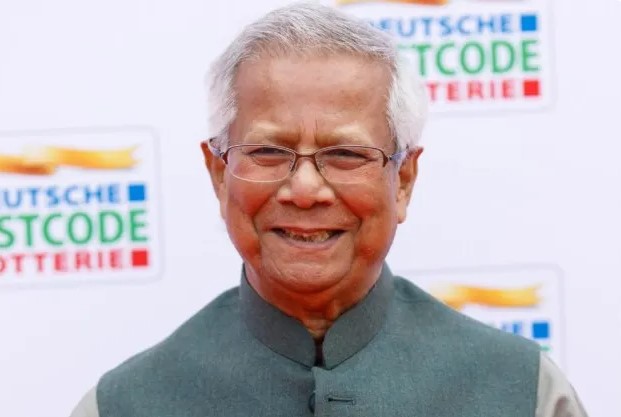International
Nobel Peace Prize winner, Yunus, to lead Bangladesh interim government

Nobel laureate, Prof. Muhammad Yunus has been named Bangladesh’s interim leader.
Recall that the Prime Minister of Bangladesh, Sheikh Hasina resigned and fled the country following weeks of intense protests by the citizens.
Yunus, 84, was appointed a day after Hasina left.
The Nobel laureate, who is a long time political foe of the ousted Prime Minister, has been praised for his pioneering use of microloans.
Hasina regarded him as a public enemy – he is currently on bail, appealing against a six-month jail term in what he has called a politically-motivated case.
Students who led the mass protests that unseated Hasina refused to accept a military-led government and pushed for Prof Yunus to lead the interim administration.
The decision to name Yunus as chief adviser of the interim government was sequel to a meeting between President Mohammed Shahabuddin, military leaders and student leaders.
“When the students who sacrificed so much are requesting me to step in at this difficult juncture, how can I refuse?” Prof Yunus had said.
“He is returning to Dhaka from Paris where he is undergoing a minor medical procedure,” his spokesperson had said.
Recall that the protests in Bangladesh began in early July with demands from university students to abolish quotas in civil service jobs, but snowballed into a broader anti-government movement.
READ ALSO: Bangladesh president dissolves parliament, frees ex-PM
Over 400 people are reported to have died in clashes between government forces and protesters – mostly civilians shot by police.
On Monday alone, more than 100 people died across the country, making it the single deadliest day in the movement. Hundreds of police stations were also torched.
Hours before protesters stormed and looted the former PM’s official residence in the capital Dhaka, Ms Hasina resigned and fled to neighbouring India. That brought a swift and abrupt end to her nearly 15-year rule.
Even as Bangladesh’s economy grew in the past decade, the former PM came under increasing criticism for silencing her critics and jailing her political opponents.
Some of them, such as ex-PM Khaleda Zia and activist Ahmad Bin Quasem, were released soon after Hasina’s hasty exit.
Zia chairs the main opposition Bangladesh Nationalist Party, which boycotted elections in 2014 and again in 2024, saying free and fair polls were not possible under Hasina.
The 78-year-old was imprisoned in 2018 for corruption – charges which he said were politically motivated.
Rights groups had said that Quasem was detained in 2016, one of hundreds of forced disappearances during Ms Hasina’s tenure.
Yunus, who was sentenced to six months in jail in January for violating labour laws, has said he too was a victim of Hasina’s ire.
He has faced other allegations in the past, going back to 2011 when he was accused of defaming Bangladesh’s politicians.
Join the conversation
Support Ripples Nigeria, hold up solutions journalism
Balanced, fearless journalism driven by data comes at huge financial costs.
As a media platform, we hold leadership accountable and will not trade the right to press freedom and free speech for a piece of cake.
If you like what we do, and are ready to uphold solutions journalism, kindly donate to the Ripples Nigeria cause.
Your support would help to ensure that citizens and institutions continue to have free access to credible and reliable information for societal development.




























